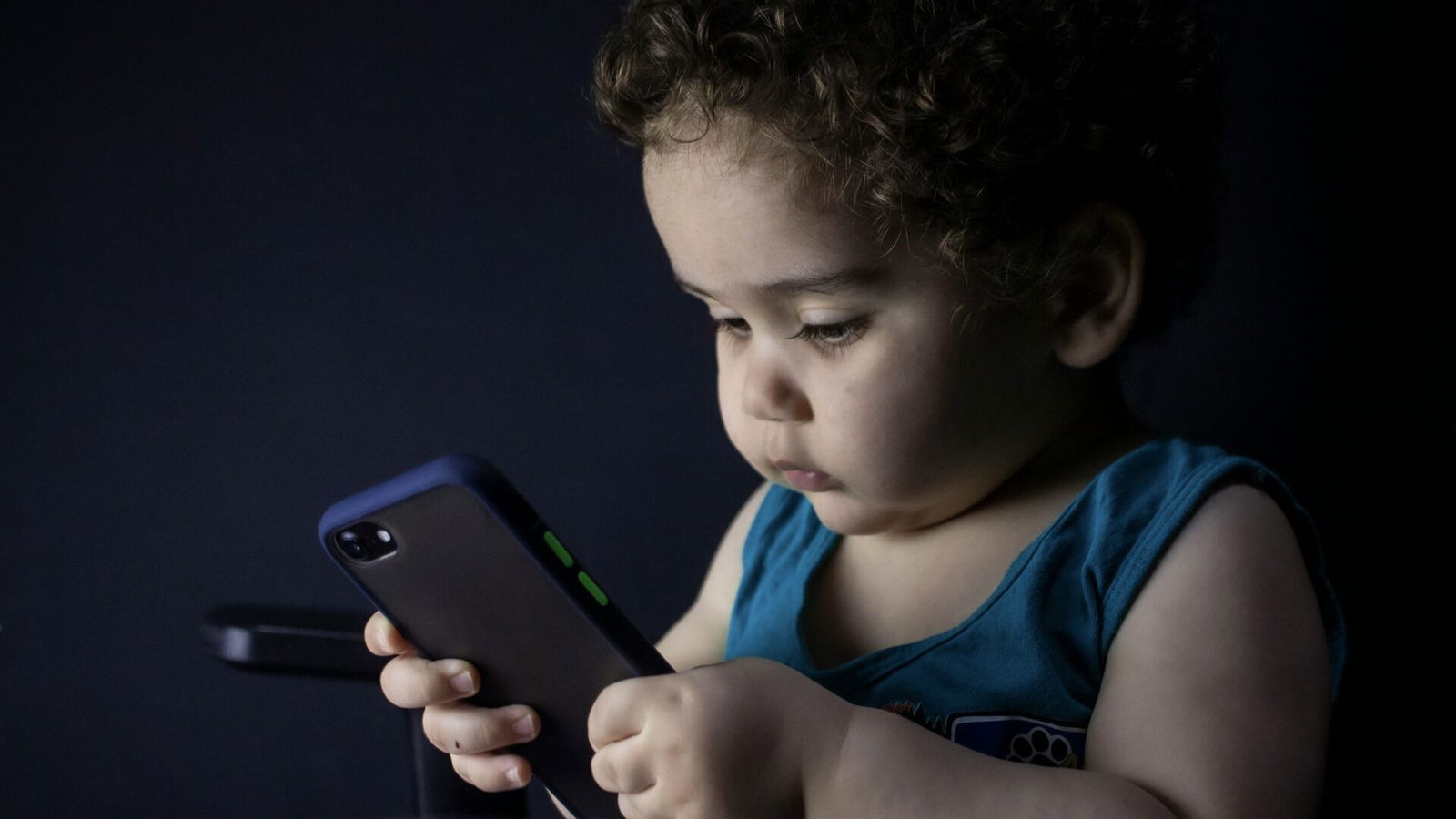
Side Effects of Toddler Screen Time You Didn’t Know About
By Movieguide® Contributor
In our digital climate, many parents allow their toddlers to look at screens, but there are some good reasons why they shouldn’t.
“Researchers are looking into the physical, cognitive and social consequences of 0- to 3-year-olds using smartphones or tablets on their own. Their initial findings are worrying,” World Crunch reported Jan. 1.
“The more time a two-year-old spends in front of a screen, the higher their body mass index (BMI). Researchers in Sydney, for example, measured this back in 2014, with their young test participants spending an average of almost five hours a week in front of a screen,” World Crunch said. “The health problem: an elevated BMI is a risk factor for developing Type 2 diabetes.”
Too much screen time for kids under 4, before their eyeballs are fully developed, can cause myopia (nearsightedness). Kids who use screens also get less sleep, which affects their ability to learn effectively.
If sleep quality “decreases, the brain cannot develop optimally and performs less effectively — resulting in children processing and memorizing experiences or learned information less efficiently,” World Crunch says.
A recent Singaporean study found that babies and toddlers who had several hours of screen time developed motor skills more slowly than others, not just as babies but also at the highest age the study recorded, which was nine.
It’s important that kids learn about the world through tangible experiences.
“World-leading” brain scientist Dr. Patricia Kuhl said, “What we’ve discovered is that little babies, under a year old, do not learn from a machine. Even if you show them captivating videos, the difference in learning is extraordinary. You get genius learning from a live human being, and you get zero learning from a machine.”
World Crunch said:
David Martin, a pediatrician at Witten/Herdecke University, has been studying the consequences of screen media use for children under three for years. During a video call, he illustrates the problem: “Even if I only see you on the screen, I know that the dark area on your head is hair and how it would feel if I touched it. I know that the window sill behind you continues, even though I only see it to your right and left. I know that the blue rectangle at the very top is the sky. I know all this because I have acquired this world knowledge in the three-dimensional world.”
A toddler has to learn this first — and that doesn’t happen in two dimensions.
READ MORE: YOUR CHILD’S DEVICES MIGHT BE CAUSING THEIR NECK PROBLEMS
Screen time can also have emotional-psychological effects on children.
“If I as a child learn that ‘When I’m bored or frustrated, I turn on my tablet,’ that’s an avoidance mode,” said Sabina Puaen, professor of developmental psychology at the University of Heidelberg. “And that ultimately worsens the problem because the child doesn’t learn more suitable strategies for regulating unpleasant feelings.”
She advises that parents never use screen time as a reward.
“It’s like with sweets,” says Pauen. “If you declare something as a reward, the child associates it with pleasant feelings — and will later crave it all the more intensely.”
Parents’ screen use can also cause problems, as children can’t interpret their parents’ facial expressions when they’re looking at screens.
“If you secretly look at your own screen in front of your baby, your face will reflect your reaction to whatever you are looking at — and not to your own baby. This creates a discrepancy that a child cannot interpret,” World Crunch says.
“A baby can’t understand why mom is smiling when she is grimacing because she is cold. And it can’t see the funny meme that she has just received on WhatsApp,” World Crunch continued. “Children who are regularly exposed to such situations react confused and stressed, and in extreme cases aggressively.”
Dr. Carol Wilkinson, a developmental-behavioral pediatrician at Boston Children’s Hospital, encourages parents to take away screens and create palpable interactions with their babies and toddlers. Simple play can pave the way for great development.
“Singing along, commenting on characters, imitating their baby’s vocalizations, and asking them questions creates opportunities for back-and-forth interactions between parents and baby that boost brain development,” she said.
READ MORE: IS DOOMSCROLLING GIVING YOUR TEEN ‘BRAIN ROT’?
Questions or comments? Please write to us here.


 - Content:
- Content: 

